Survey
1. Purpose of Survey
Mr. Jui-Wen Chen designed the JW Eco-Technology to solve many problems resulting from climate change. We hope, through this survey, we can understand how well our schoolmates understand the relationship between climate change and road pavements. The information from this survey will help us design the direction of our project framework.
2. Target Audience of the Survey
We sent out 284 surveys to 284 students in Kang Chiao Bilingual School and received 273 completed responses out of the 284 surveys.
3. Survey Analysis
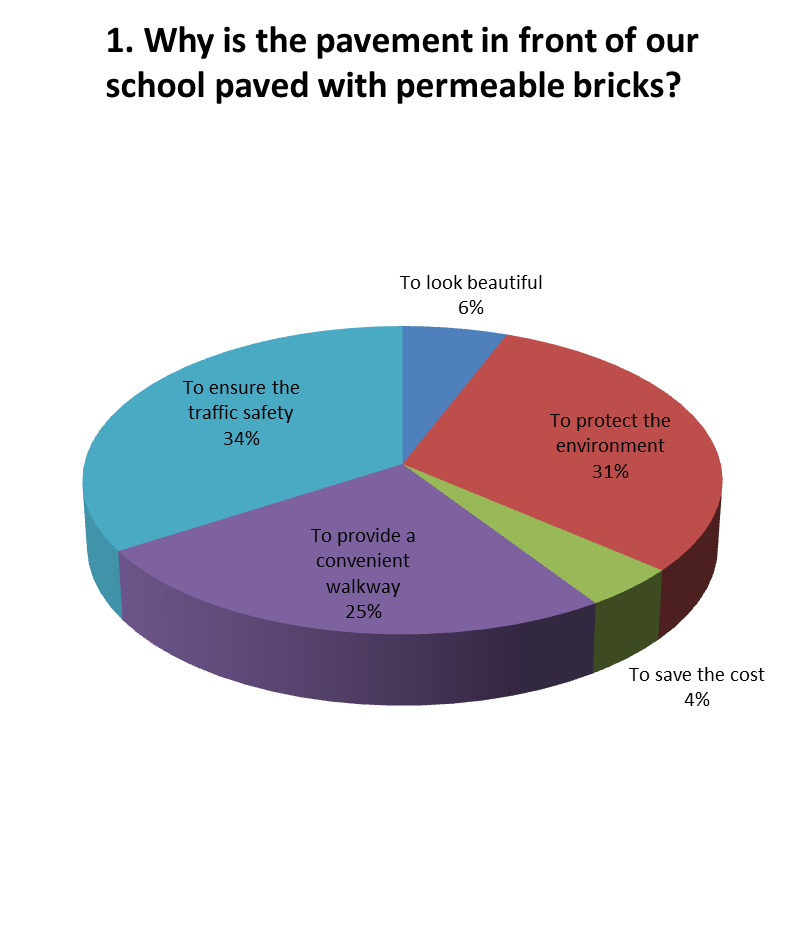
1. Why is the pavement in front of our school paved with permeable bricks?
The correct answer to this question is "to protect the environment."
The survey result showed that only 31% of the students chose "to conserve the environment." Many of the students chose "to ensure traffic safety" and "to provide a convenient walkway," and the percentages are 34% and 25%, respectively. We speculated that the students may not notice or understand what the word "permeable" means. Thus, they did not see the connection between permeable pavements and environmental protection. Therefore, we decided that it would be important for us to include information about permeable pavements on our website.
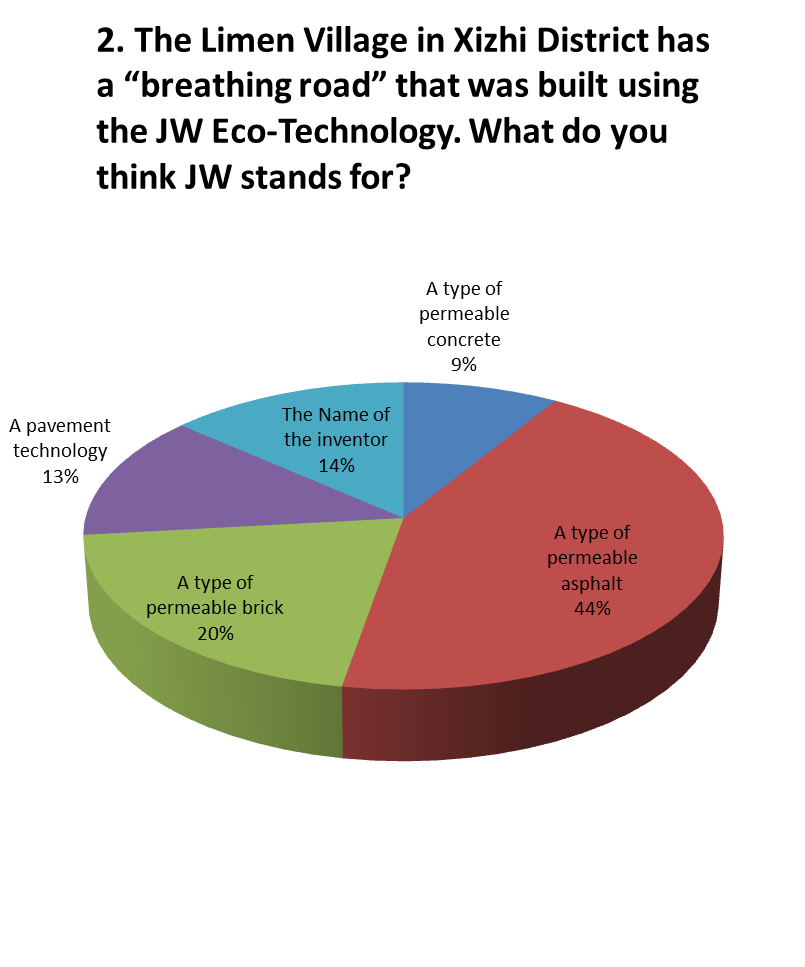
2. The Limen Village in Xizhi District has a "breathing road" that was built using the JW Eco-Technology. What do you think JW stands for?
The correct answer to this question is "the name of the inventor." JW is the abbreviation of Jui-Wen from Jui-Wen Chen, the inventor of the JW Eco-Technology.
44% of the people chose the answer "a type of permeable asphalt," showing us that the students do not know much about Mr. Jui-Wen Chen and his JW Eco-Technology. The students also seem to assume that all pavements are constructed with asphalt.
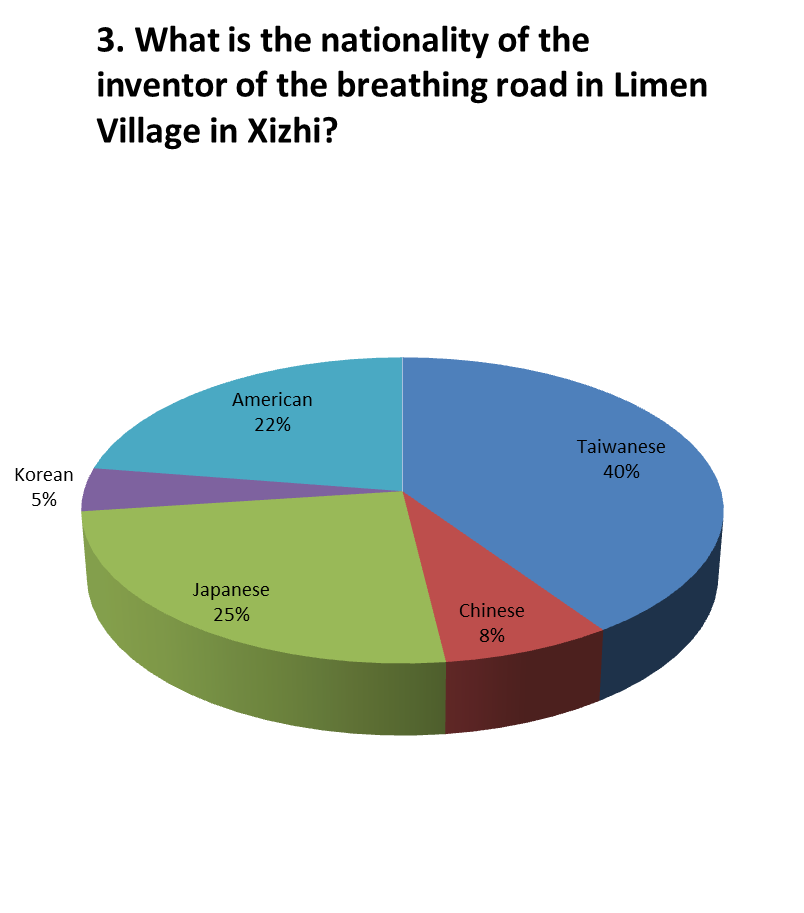
3. What is the nationality of the inventor of the breathing road in Limen Village in Xizhi?
The answer is "Taiwanese."
Only 40% of the students chose Taiwanese, showing that they are not familiar with the breathing road. Therefore, we can introduce Mr. Jui-Wen Chen and the development in his creation of the breathing road, so more people can know that the JW Eco-Technology was designed locally in Taiwan.
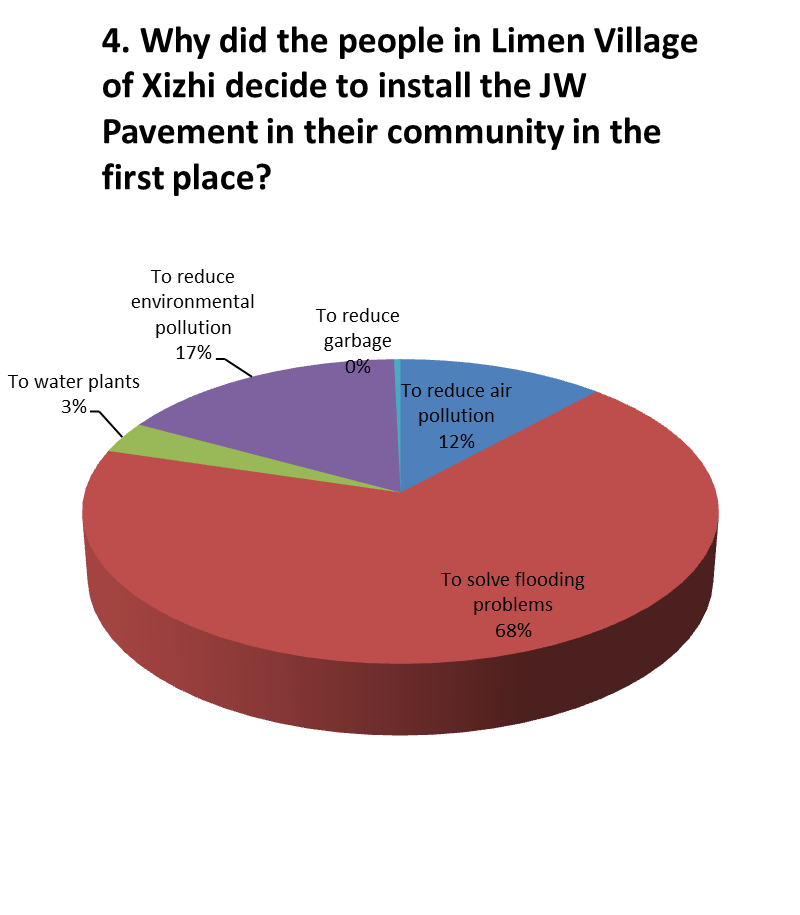
4. Why did the people in Limen Village of Xizhi decide to install the JW Pavement in their community in the first place?
The correct answer is "to water plants."
To our surprise, only 3% of students chose this answer. Most students chose "to solve flooding problems." Although the JW Eco-Technology does, in fact, solve problems dealing with water, but this was not the initial intention of those in Limen Village. They initially wanted the JW Pavement to be able to water the plants in the local community.
We concluded that students chose "to solve flooding problems" most likely because many students had heard about the frequent flooding problems that happen in the Xizhi District.
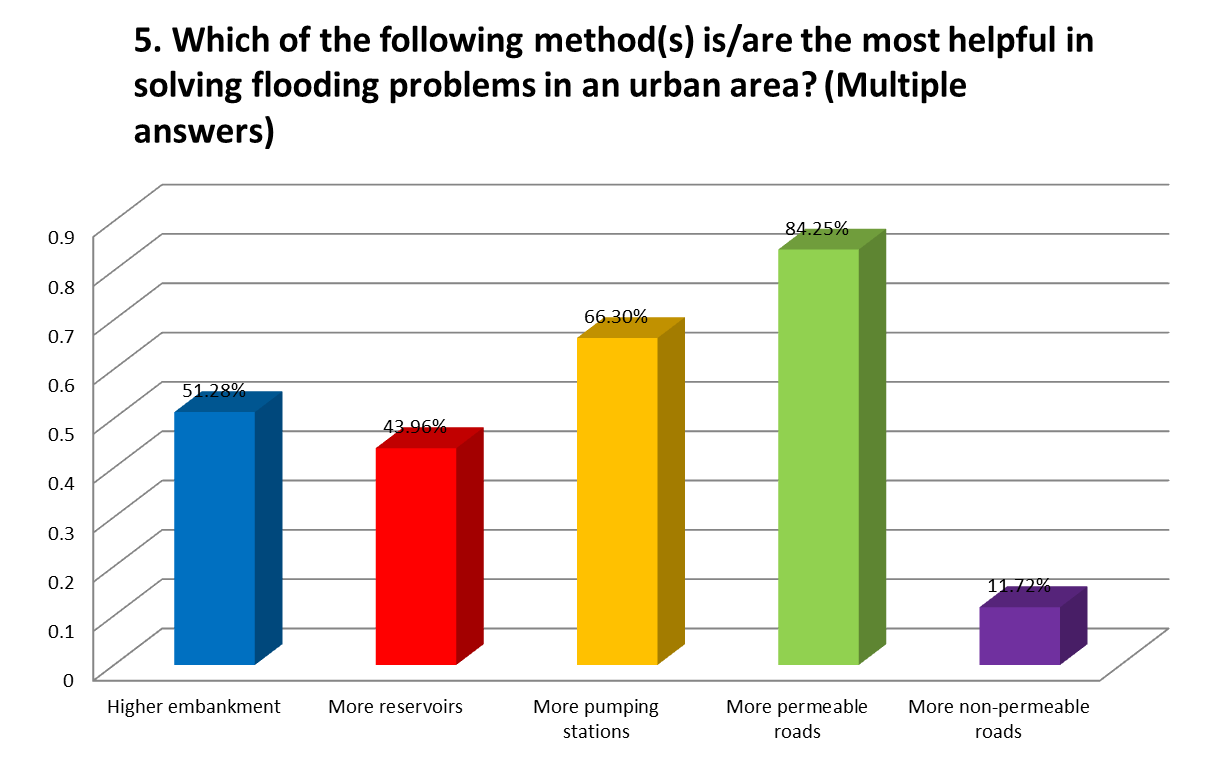
5. Which of the following method(s) is/are the most helpful in solving the flooding problem in an urban area? (multiple answers)
The correct answer is "more permeable roads," but "higher embankment" and "more water pumping stations" are also acceptable answers. The choice "more reservoirs" can also be considered a correct answer if the students equate reservoirs with retention basins in the urban area.
The results showed that 84% of the students chose "more permeable roads," indicating they have a reasonable level of understanding in solving the flooding problem in an urban area.
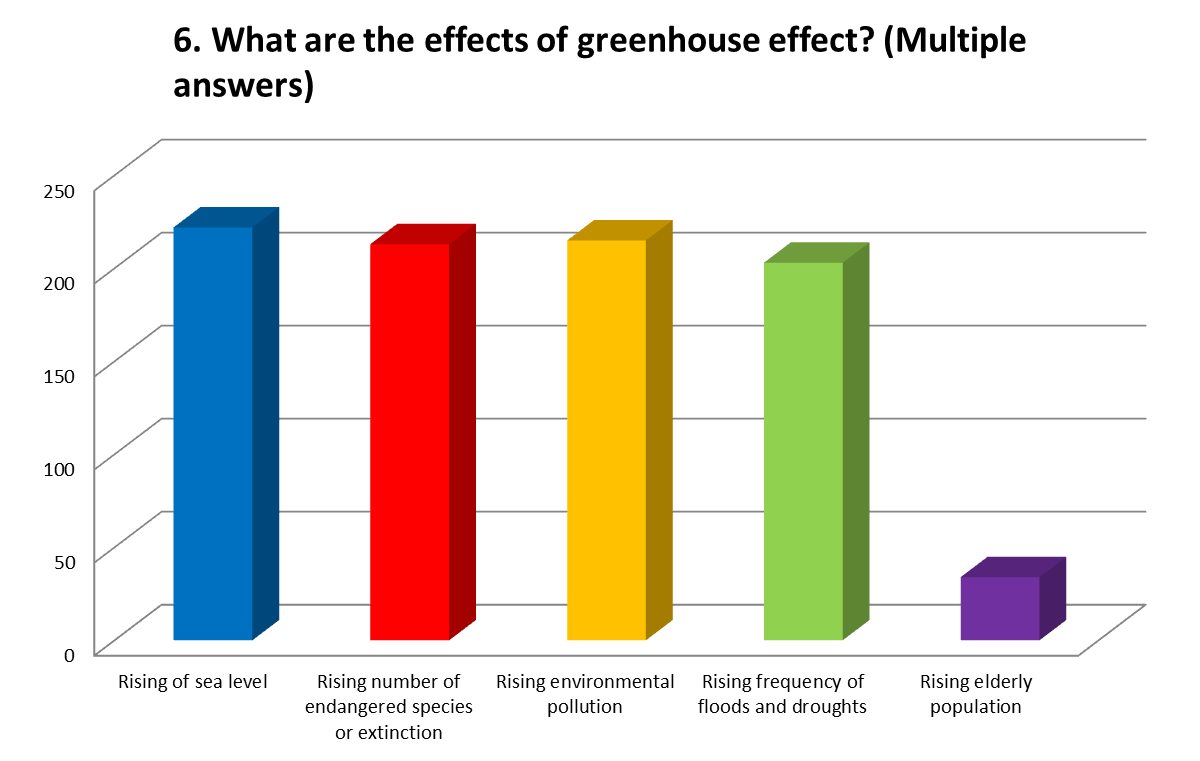
6. What are the impacts of the greenhouse effect? (multiple answers)
The correct answer is "rising sea level," but "rising number of endangered species or extinction" and "rising frequency of floods and droughts" are also accepted. Pollution in the environment does not have a direct correlation with the greenhouse effect, and a rising elderly population certainly has very little to do with the greenhouse effect as well.
Many students chose the three correct answers, but there were still 79% of the students whose choice reflected that they believe the greenhouse effect directly influences pollution levels. Interestingly, 12% of the students selected "rising elderly population" as an answer. The students' answers to this survey question showed that they did not have a solid understanding of the greenhouse effect and the impact it has on our world. Therefore, we think it is a topic worthy of our exploration, so we may share our findings with others and help them to become more knowledgeable about our world.
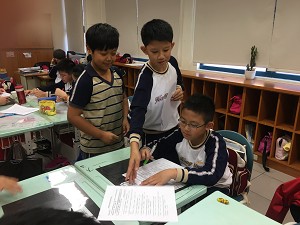

By Philip Huang